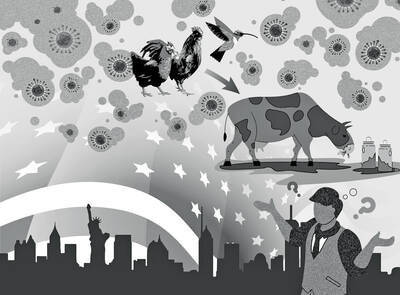It may come as a surprise to some people that the upstart Warsaw Stock Exchange has surpassed the venerable Vienna exchange in trading volume, but to Ludwik Sobolewski, president of the Polish bourse, this is old news indeed.
“The time has passed when we defined our position versus Vienna,” Sobolewski said in an interview in his sleek office inside the exchange building in downtown Warsaw, where visitors wait to see him in a room decorated with a large tank of piranhas.
Instead, Sobolewski, a 45-year-old lawyer, is already measuring his institution against European giants like the London Stock Exchange and the Deutsche Boerse in Frankfurt. With 32 initial public offerings in the third quarter of this year, he can already claim to have surpassed them in the number, if not the market value, of new listings.
In July, Warsaw signed a contract to use the NYSE Euronext trading platform, making it easier for US investors to trade shares from Poland and other countries in the region that are listed on the exchange. The agreement is part of Sobolewski’s plan to make Warsaw the dominant exchange for Central Europe, with listings from countries like Romania and Ukraine and others as far south as the Balkans.
Sobolewski’s ambitions reflect a shift in the economic center of gravity in Europe. As the only country in the EU to escape recession during the financial crisis, Poland has become a magnet for foreign investment. While much of Europe is still climbing out of recession, Poland is expected to grow more than 4 percent next year, after 3.6 percent this year.
Stephen Schwarzman, the chief executive and a cofounder of the Blackstone Group, has his eyes on the region. He told an audience in New York on Tuesday that an acquisition in Central Europe would be “really neat” if regional economies held up.
A government privatization wave has drawn investment banks like Goldman Sachs, Citigroup and Morgan Stanley, which have opened offices in Warsaw in the last year. One of the biggest privatizations was the Warsaw Stock Exchange itself, whose shares soared 18 percent promptly after an initial public offering on Nov. 9.
“Everyone wants to have a piece of Polish action,” Artur Tomala, head of Goldman Sachs Poland, said at a recent conference sponsored in part by the International Herald Tribune.
Warsaw may be one of the few places left in Europe where investment banks are still welcomed warmly.
“I can’t imagine having such a broad privatization program without cooperating with investment banks,” Polish Treasury Minister Aleksander Grad said in an interview.
Vienna, as the former capital of the Hapsburg dynasty, has a historical claim to be Central Europe’s financial center. Austrian institutions like Erste Bank are deeply embedded in the region.
However, the Austrian banks emerged bruised from the financial crisis, while Polish institutions escaped relatively unscathed because of their low exposure to troubled foreign assets.
Now, Warsaw is trying to sell itself as a capital that offers growth, without the overexuberance that ended in tears so many other places.
“For an effective financial center what we need above all is a stability culture,” Polish Finance Minister Jacek Rostowski said at the conference.
“We have not had the kind of excessively rapid growth that other countries have seen,” Rostowski said, who promised Poland would exercise tight supervision over its financial sector.
To be sure, the CEE Stock Exchange Group, an alliance of the exchanges in Vienna, Budapest, Prague and Ljuljana, still has more trading volume collectively than Warsaw.
Beatrix Exinger, a spokeswoman for the Vienna exchange, concedes Warsaw has more initial public offerings but she argues that the Vienna exchange, founded in 1771, is home to more blue-chip companies.
“We have less quantity but more quality,” Exinger said.
While the Warsaw Stock Exchange had more new listings than any other European exchange from July through September, they were mostly small companies listed on the so-called NewConnect platform. The total value of the Warsaw IPOs was 60 million euros (US$79.4 million), according to PricewaterhouseCoopers, compared with a total of 1.7 billion euros for the 20 new listings on the London Stock Exchange.
The European Bank for Reconstruction and Development, which promotes development in the former Soviet bloc countries, has expressed concern about the low level of liquidity in the Polish exchange, meaning that it can be difficult to find buyers or sellers for some shares.
Sobolewski agreed that “liquidity is king,” and outlined plans to attract listings from as far south as Bulgaria and Serbia. The exchange can already boast companies like Kernel Holdings, a maker of sunflower oil that is Ukraine’s largest agricultural company. As Sobolewski pointed out, Warsaw still needs more of the professionals that are essential to a vibrant financial center, like auditors, lawyers, bank analysts and financial media.
“It is not ended, by far but the situation is better than a few years ago,” he said.
There is also a risk that the Polish market, as one of the few growth stories in Europe, could become overheated from too much foreign investment. But no one in Warsaw seems to be worried about bubbles.
“It would be desirable to have more companies invested in Poland,” Sobolewski said. “We are still far from the point where it might be dangerous.”
A series of strong earthquakes in Hualien County not only caused severe damage in Taiwan, but also revealed that China’s power has permeated everywhere. A Taiwanese woman posted on the Internet that she found clips of the earthquake — which were recorded by the security camera in her home — on the Chinese social media platform Xiaohongshu. It is spine-chilling that the problem might be because the security camera was manufactured in China. China has widely collected information, infringed upon public privacy and raised information security threats through various social media platforms, as well as telecommunication and security equipment. Several former TikTok employees revealed

The bird flu outbreak at US dairy farms keeps finding alarming new ways to surprise scientists. Last week, the US Department of Agriculture (USDA) confirmed that H5N1 is spreading not just from birds to herds, but among cows. Meanwhile, media reports say that an unknown number of cows are asymptomatic. Although the risk to humans is still low, it is clear that far more work needs to be done to get a handle on the reach of the virus and how it is being transmitted. That would require the USDA and the Centers for Disease Control and Prevention (CDC) to get

For the incoming Administration of President-elect William Lai (賴清德), successfully deterring a Chinese Communist Party (CCP) attack or invasion of democratic Taiwan over his four-year term would be a clear victory. But it could also be a curse, because during those four years the CCP’s People’s Liberation Army (PLA) will grow far stronger. As such, increased vigilance in Washington and Taipei will be needed to ensure that already multiplying CCP threat trends don’t overwhelm Taiwan, the United States, and their democratic allies. One CCP attempt to overwhelm was announced on April 19, 2024, namely that the PLA had erred in combining major missions
On April 11, Japanese Prime Minister Fumio Kishida delivered a speech at a joint meeting of the US Congress in Washington, in which he said that “China’s current external stance and military actions present an unprecedented and the greatest strategic challenge … to the peace and stability of the international community.” Kishida emphasized Japan’s role as “the US’ closest ally.” “The international order that the US worked for generations to build is facing new challenges,” Kishida said. “I understand it is a heavy burden to carry such hopes on your shoulders,” he said. “Japan is already standing shoulder to shoulder